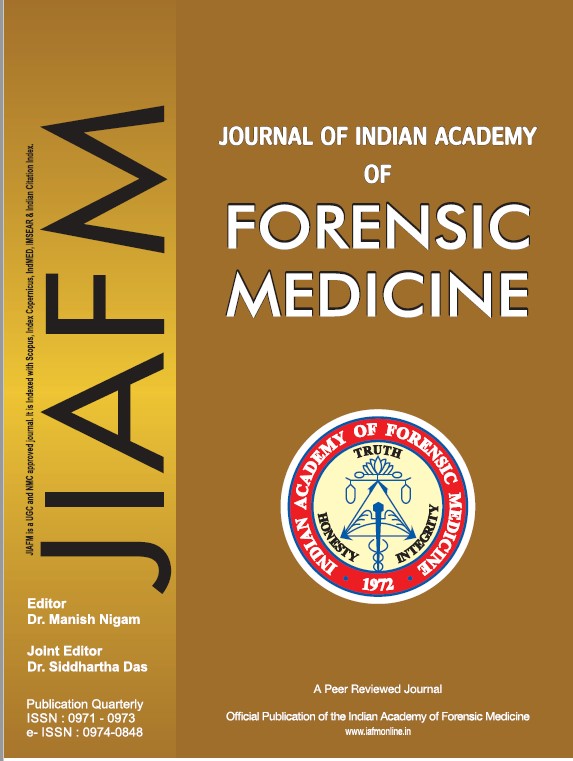Medico-Legal Aspects of Dying Declaration in India
DOI:
https://doi.org/10.48165/Keywords:
Compos mentis, Courts, Dying declaration, Magistrate, Police officer, KumarAbstract
A dying declaration is a statement made by a dying person as to the cause of his death or as to any circumstances of the transaction that resulted in his death. The dying declaration forms the sole basis of conviction if it is free from any kind of doubt and if it has been recorded in the manner as provided under the law. It should inspire full confidence in its truthfulness and correctness. Not recording of dying declaration will result in miscarriage of justice because the victim being generally the only eye-witness in a serious crime, the exclusion of the statement would leave the court without a scrap of evidence. It is for the court to see that dying declaration inspires full confidence as the maker of the dying declaration is not available for cross examination.
This article focus on the medico-legal and ethical aspects encountered while recording dying declaration and its weightage in the court of law.
A dying declaration is a statement made by a dying person as to the cause of his death or as to any circumstances of the transaction that resulted in his death. The dying declaration forms the sole basis of conviction if it is free from any kind of doubt and if it has been recorded in the manner as provided under the law. It should inspire full confidence in its truthfulness and correctness. Not recording of dying declaration will result in miscarriage of justice because the victim being generally the only eye-witness in a serious crime, the exclusion of the statement would leave the court without a scrap of evidence. It is for the court to see that dying declaration inspires full confidence as the maker of the dying declaration is not available for cross examination. This article focus on the medico-legal and ethical aspects encountered while recording dying declaration and its weightage in the court of law.
Downloads
References
K. Mathiharan, K Kannan. Medical Evidence and Medical Witness, Modi’s Medical Jurisprudence and Toxicology. 24thed, Lexis Nexis Butterworth’s; 2011. p. 42-50.
Gorea RK, Aggarwal OP. Critical Appraisal of Dying Declaration. JIAFM. 2004; 26(1): 24-26.
Bhajju @ Karan Singh vs. State Of M.P. on 15 March, 2012. Available from: http://indiankanoon.org/doc/166873249/.
Dr.Mukesh Yadav. Dying Declaration: A Vital Medicolegal Evidence. JIAFM 28 (4) 2006: 155-158. Available at www.iafmonline.in. 5. Narayan Joshi. Dying declaration, Medical Jurisprudence and Toxicology, 2nd ed, Kamal Publishers; 2011. P. 192-218.
Mahapatra, D. Anyone can record a dying declaration, Supreme Court rules. The Times of India. 24 May 2013; Page 7 (Col. 1).


